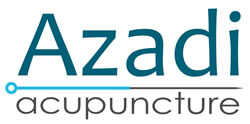Relief for TMJ Dysfunction: Acupuncture and Massage
Temporomandibular joint dysfunction (TMJD) varies in severity, affecting individuals differently. Whether your TMJD symptoms are mild, chronic, or anywhere in between, the pain and discomfort can disrupt daily life.
Understanding TMJ Dysfunction
The temporomandibular joint (TMJ) connects your jaw to your skull, facilitating essential movements. TMJD symptoms include:
- Jaw and Face Pain: TMJ dysfunction can cause mild to severe jaw and facial pain.
- Migraines: Headaches or migraines may stem from jaw tension.
- Difficulty Chewing: Chewing becomes painful or uncomfortable.
- Clenching and Grinding: Teeth clenching or grinding can lead to dental damage.
- Damage to the Teeth: Clenching may result in dental issues.
- Ear-Related Symptoms: Tinnitus, earaches, and ear fullness can occur.
- Headaches: Frequent headaches are a common symptom.
- Dizziness and Vertigo: Balance can be affected, causing dizziness.
- Nausea: Nausea may accompany dizziness and discomfort.
- Toothaches: Pain may radiate to the teeth.
- Shoulder Pain or Tightness: TMJ dysfunction can lead to upper shoulder discomfort.
- Swelling on the Sides of the Face: Inflammation may occur.
- Misaligned Bite: Some feel their bite is misaligned.
- Popping Sounds: Clicking or popping sounds when opening the mouth.
- Trismus (Lockjaw): Severe cases may lead to limited mouth opening.
- Malocclusion: The jaw may close with a misalignment.
Acupuncture and Massage for TMJ Dysfunction
Acupuncture and massage effectively address TMJ dysfunction. Acupuncture involves fine needles inserted at specific points to reduce tension, improve circulation, and relieve pain in the jaw and facial muscles. TMJ massage uses specialized techniques to relax jaw, face, and neck muscles.
Benefits of TMJ Acupuncture and Massage:
- Pain Relief: Both therapies alleviate discomfort.
- Muscle Relaxation: Tense muscles around the jaw relax.
- Improved Circulation: Acupuncture enhances blood flow.
- Stress Reduction: These therapies lower stress levels.
- Enhanced Mobility: Jaw mobility improves.
- Preventing Dental Damage: Teeth clenching and grinding decrease.
- Holistic Approach: Physical and emotional aspects are addressed.
If you’re struggling with TMJ dysfunction, consider acupuncture and massage for relief. These treatments improve comfort, reduce pain, and restore optimal jaw function, making everyday activities pain-free.
